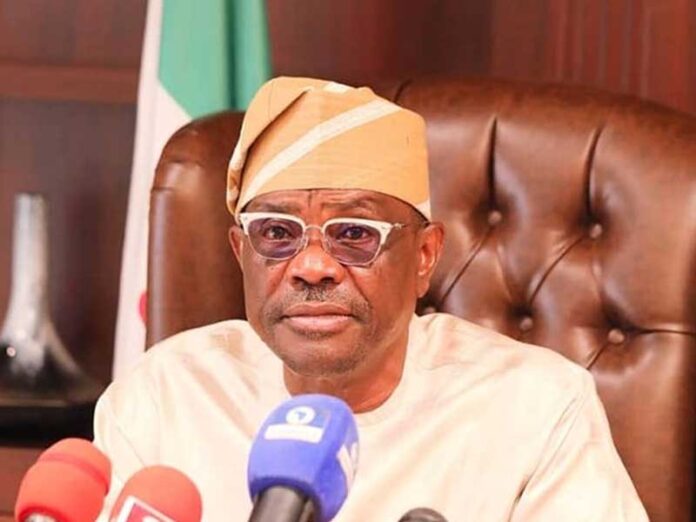At a recent event in Abuja, Nigeria’s 25 years of democracy became the focal point of a heated debate between politicians and activists. The This Nigeria Lecture and Award ceremony turned into an unexpected forum for discussing the nation’s democratic journey, highlighting the ongoing tension between those in power and civil society voices.
Minister of Federal Capital Territory (FCT), Nyesom Wike, challenged the perspectives presented by prominent activists, including Senior Advocate of Nigeria (SAN) Mike Ozekhome. Wike, an awardee at the event, expressed frustration with what he perceived as an overly critical view of Nigeria’s democratic progress.
“We are talking about 25 years of democracy; we know we have challenges,” Wike acknowledged. “But the lecture was just about criticism, nothing was said about progress. Are you telling me that no single progress was made?” The minister emphasized improvements in personal freedoms and infrastructure development as signs of democratic advancement.
Wike’s comments sparked a broader discussion about the role of activists in politics. He pointedly questioned the effectiveness of activists-turned-politicians, asking former senator Shehu Sani about his performance in office and challenging Ozekhome on his legal practices. “As an activist, how many times have you rejected briefs? Those who rigged election, how many times have you defended them?” Wike asked, highlighting the complex relationship between activism and practical governance.
The exchange underscored a persistent divide in Nigerian politics between those who view progress through the lens of incremental improvements and those who focus on systemic shortcomings. It also raised questions about the transition of civil society leaders into formal political roles and the challenges they face in effecting change from within the system.
Shehu Sani, reflecting on the transition to democracy in 1999, revealed a critical moment in Nigeria’s recent history. He recounted how democracy activists, including himself, initially rejected overtures from the military to take over governance. “We made a fundamental mistake and said, we are not going to cooperate with the military,” Sani explained, contrasting this decision with the approach taken by the African National Congress in South Africa.
This revelation provides insight into the complexities of Nigeria’s democratic transition and the missed opportunities that may have shaped the country’s political landscape over the past quarter-century. It also highlights the ongoing debate about the best strategies for achieving meaningful political change in Nigeria.
The event showcased the dynamic and often contentious nature of Nigeria’s democratic discourse. While politicians like Wike emphasize tangible progress and the challenges of governance, activists and former civil society leaders continue to push for more fundamental reforms.
As Nigeria reflects on 25 years of civilian rule, the debate at the This Nigeria Lecture and Award ceremony demonstrates that the country’s democratic journey remains a work in progress. The clash of perspectives between those in power and those who have long advocated for change from outside the system reveals the complex path ahead for Africa’s largest democracy.
Moving forward, bridging the gap between activist ideals and political realities may be crucial for Nigeria’s continued democratic development. The exchange between Wike, Ozekhome, and Sani serves as a reminder of the ongoing need for dialogue and collaboration among all sectors of society to address the nation’s challenges and build on its democratic achievements.




